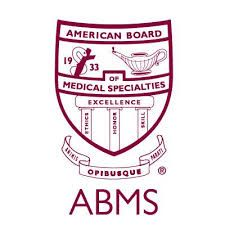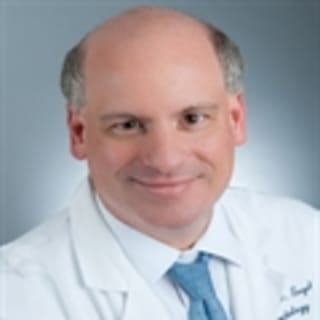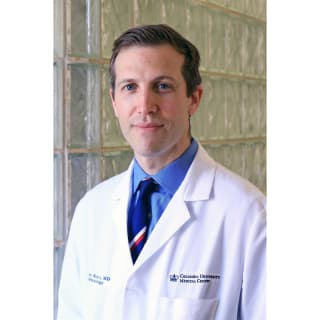
Richard N Kitsis MD
Professor of Medicine and Cell Biology; Dr. Gerald and Myra Dorros Chair in Cardiovascular Disease; Director, Wilf Family Cardiovascular Research Institute, Albert Einstein College of Medicine
Join to View Full Profile
Albert Einstein College of Medicine1300 Morris Park AvenueBronx, NY 10461
Phone+1 718-430-2609
Fax+1 718-430-8989
Dr. Kitsis is on Doximity
As a Doximity member you'll join over two million verified healthcare professionals in a private, secure network.
- Gain access to free telehealth tools, such as our “call shielding” and one-way patient texting.
- Connect with colleagues in the same hospital or clinic.
- Read the latest clinical news, personalized to your specialty.
Summary
- Dr. Richard Kitsis is a cardiologist in Bronx, NY and is affiliated with Montefiore Medical Center. He received his medical degree from University of California San Francisco School of Medicine and has been in practice 42 years. He specializes in cardiology.
Education & Training
 Albert Einstein College of MedicinePost-Doctoral Fellowship, 1989 - 1993
Albert Einstein College of MedicinePost-Doctoral Fellowship, 1989 - 1993 Montefiore Medical Center/Albert Einstein College of Medicine (Montefiore)Fellowship, Cardiovascular Disease, 1987 - 1991
Montefiore Medical Center/Albert Einstein College of Medicine (Montefiore)Fellowship, Cardiovascular Disease, 1987 - 1991 Boston VA Healthcare System (Brockton-West Roxbury)Residency, Internal Medicine, 1984 - 1987
Boston VA Healthcare System (Brockton-West Roxbury)Residency, Internal Medicine, 1984 - 1987 Mass General Brigham/Massachusetts General HospitalInternship, Internal Medicine, 1980 - 1981
Mass General Brigham/Massachusetts General HospitalInternship, Internal Medicine, 1980 - 1981 University of California San Francisco School of MedicineClass of 1980
University of California San Francisco School of MedicineClass of 1980
Certifications & Licensure
 NY State Medical License 1987 - 2026
NY State Medical License 1987 - 2026 MA State Medical License 1982 - 1987
MA State Medical License 1982 - 1987 American Board of Internal Medicine Internal Medicine
American Board of Internal Medicine Internal Medicine- American Board of Internal MedicineCardiovascular Disease
Awards, Honors, & Recognition
- The Schottenstein Prize in Cardiovascular Science 2023
- Chair Scientific Committee, Sarnoff Cardiovascular Research Foundation, 2017
- Keynote Lecture Cardiovascular Research Symposium, Case Western Reserve University, 2015
- Join now to see all
Publications & Presentations
PubMed
- Extracellular Role for the Intracellular Cell Death Mediator RIPK3 in Myocardial Infarction.Dongze Qin, Radheshyam Modanwal, Richard N Kitsis
Circulation. 2024-11-26 - 15 citationsOPA1 promotes ferroptosis by augmenting mitochondrial ROS and suppressing an integrated stress response.Felix G Liang, Fereshteh Zandkarimi, Jaehoon Lee, Joshua L Axelrod, Ryan Pekson
Molecular Cell. 2024-08-22 - Ponatinib-Induced Cardiomyocyte Toxicity: Dark Side of the Integrated Stress Response.Felix G Liang, Javid Moslehi, Richard N Kitsis
Circulation Research. 2024-03-01
Press Mentions
 UM Researchers Identify Protein Linked to Heart Failure in Chemo Patients: Finding Could Save Millions of LivesNovember 4th, 2022
UM Researchers Identify Protein Linked to Heart Failure in Chemo Patients: Finding Could Save Millions of LivesNovember 4th, 2022
Grant Support
- Caspase-9 as a nodal point connecting necrotic and apoptotic cell death in myocardial infarctionALBERT EINSTEIN COLLEGE OF MEDICINE2022–2026
- Caspase-9 as a nodal point connecting necrotic and apoptotic cell death in myocardial infarctionALBERT EINSTEIN COLLEGE OF MEDICINE2022–2026
- Mitochondrial ATP Synthase in Cardiac Biology and DiseaseALBERT EINSTEIN COLLEGE OF MEDICINE2022–2026
- Modulation of Mitofusin Activity to Treat Heart DiseaseALBERT EINSTEIN COLLEGE OF MEDICINE2021–2025
- Modulation of Mitofusin Activity to Treat Heart DiseaseALBERT EINSTEIN COLLEGE OF MEDICINE2021–2025
- Chaperone-mediated autophagy in normal cardiac biology and heart failureNational Institutes of Health2017–2021
- Modulating autophagy to treat CV diseaseFondation Leducq2016–2021
- A new molecular pathway for diabetic cardiomyopathyNational Institutes of Health2016–2020
- Fibroblast-cardiomyocyte interactions in the pressure overloaded myocardiumDepartment of Defense2016–2019
- Regulation of cardiac death and energy metabolism by MCL-1National Institutes of Health2015–2019
- Linking cell death and mitochondrial quality control mechanisms in heart diseaseNational Institutes of Health2015–2019
- BAX as a small molecule therapeutic target for myocardial infarctionAmerican Heart Association2015–2018
- Deciphering the tissue specificity of MEN1 related tumorigenesisNational Institutes of Health2012–2018
- Molecular and cellular mechanisms of calcific aortic stenosisNational Institutes of Health2012–2016
- Chemical, structural, and molecular approaches to drug development for myocardial infarctionHarrington Disease Institute2013–2015
- A mechanism-guided chemical biology approach to iPSC-derived cardiomyocyte deathNational Institutes of Health2012–2015
- Cardiac myocyte apoptosis: mechanism and significanceNational Institutes of Health1998–2015
- Mechanistic role of necrosis –not apoptosis – in breast cancerDepartment of Defense2011–2014
- High-throughput screen for small molecules that modulate myocardial damageNational Institutes of Health2010–2012
- Mechanistic role of necrosis –not apoptosis – in breast cancerMary Kay Foundation2010–2012
- Mouse model of human calcific aortic valve stenosisNational Institutes of Health2010–2012
- Identification of adipocyte progenitor cells during adipose tissue turnover & obesityNew York State Stem Cell Science2009–2011
- Symposium: AHA Council on Basic Cardiovascular SciencesNational Institutes of Health2004–2011
- Protection of ischemic myocardiumNational Institutes of Health2005–2010
- Mechanisms of Cardiovascular DiseasesNational Institutes of Health2001–2010
- ARC in pancreatic beta-cell survivalNational Institutes of Health2008–2009
- Integration of pre-mitochondrial death signals by ARCNational Institutes of Health2005–2009
- ARC, a master repressor of apoptosis in striated muscleNational Institutes of Health1998–2008
- Stromal contributions of adipocytes in breast cancerNational Institutes of Health2005–2007
- Stem cell-based therapies in Chagasic cardiomyopathyNational Institutes of Health2003–2007
- Growth, differentiation, and death in the myocardiumMonique Weill-Caulier Award2000–2004
- Caspase inhibitors in myocardial ischemia/reperfusion injuryIdun Pharmaceuticals, Inc2001
- Caspase inhibition and myocardial ischemia in the rabbit heartPfizer, Inc1999–2000
- Insights into the mechanism and significance of myocyte apoptosis during myocardial infarctionAmerican Heart Association1997–1998
- Cardiac gene transfer - hypertension responsive elementsNational Institutes of Health1992–1997
- Mapping pressure overload responsive elements in the human ß-myosin heavy chain gene in vivoAmerican Heart Association1992–1995
- Mapping hypertension responsive elements in ß-myosin heavy chain gene in vivoAmerican Heart Association1991–1992
- Response of rat cardiac mRNAs to imposed loadsNational Institutes of Health1989–1991
Viewing the full profile is available to verified healthcare professionals only.
Find your profile and take control of your online presence:










